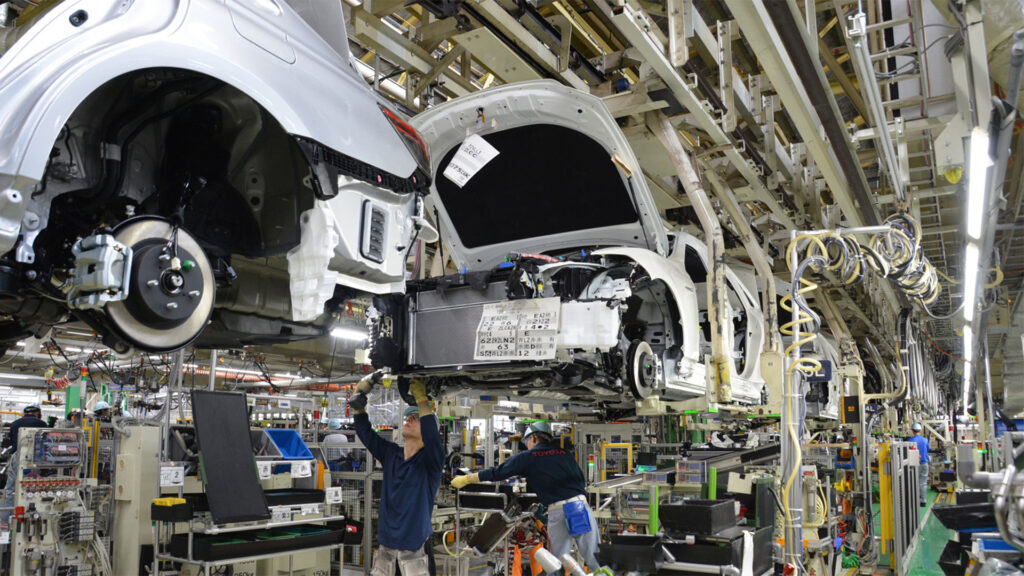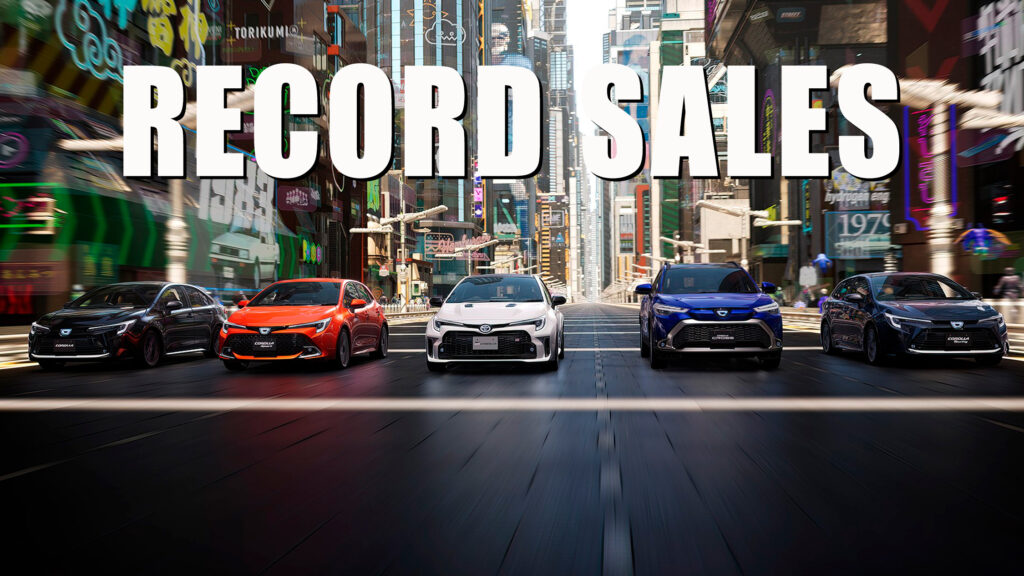Toyota sales soared to new heights last year, reaching 11.23 million and easily establishing itself as the world’s largest car manufacturer, leaving the Volkswagen Group in second place with 9.24 million vehicles.
The Toyota and Lexus brands sold a combined 10,307,395 vehicles in 2023, of which 824,258 were Lexus models. Toyota subsidiaries Daihatsu and Hino sold 790,441 and 135,203 vehicles respectively. Production across all Toyota brands also jumped last year, hitting a combined 11.51 million vehicles, a substantial increase from the 10.61 million vehicles that it built last year. Production inside Japan jumped to 4.3 million units, with the remaining 7.2 million units built outside of Japan.
Cumulative sales of the Toyota and Lexus brands have increased almost every year since 2011, except in 2020 when sales collapsed due to the COVID-19 pandemic. Last year’s sales represented a 7.7% increase over 2022, proving particularly strong in North America where they rose by 7%, in Europe where they increased by 9.1%, and in Japan where sales jumped by a significant 29.8% to 1.67 million units. Interestingly, sales dropped by 1.7% in China due to increased competition.

The automotive giant’s strong 2023 came despite it selling far fewer battery-electric vehicles than many of its rivals. Toyota sold just 104,018 BEVs last year but made up for this by shifting 3.42 million HEVs (hybrids), 26,859 MHEVs (mild hybrids), and 124,755 PHEVs (plug-in hybrids).
Read: Toyota Sales And Production Hit Record Levels As Hybrid Demand Boosts Profits
While discussing the company’s 2023 results as well as its vision for the future, Toyota chairman Akio Toyoda said he would push the group to return to basics to overcome a series of scandals that somewhat overshadowed their latest sales successes. Earlier this week it was revealed that Toyota Industries Corp had been manipulating test results to gain certification for its vehicles, prompting the brand to suspend shipments of 10 models. In December 2023, it was confirmed that Daihatsu had been manipulating collision safety test results as far back as 1989.
“I would like to express my deepest apologies to our customers and stakeholders for the inconvenience and concern caused by the successive irregularities at Hino Motors, Daihatsu and Toyota Industries,” Toyoda said, Reuters reports.




